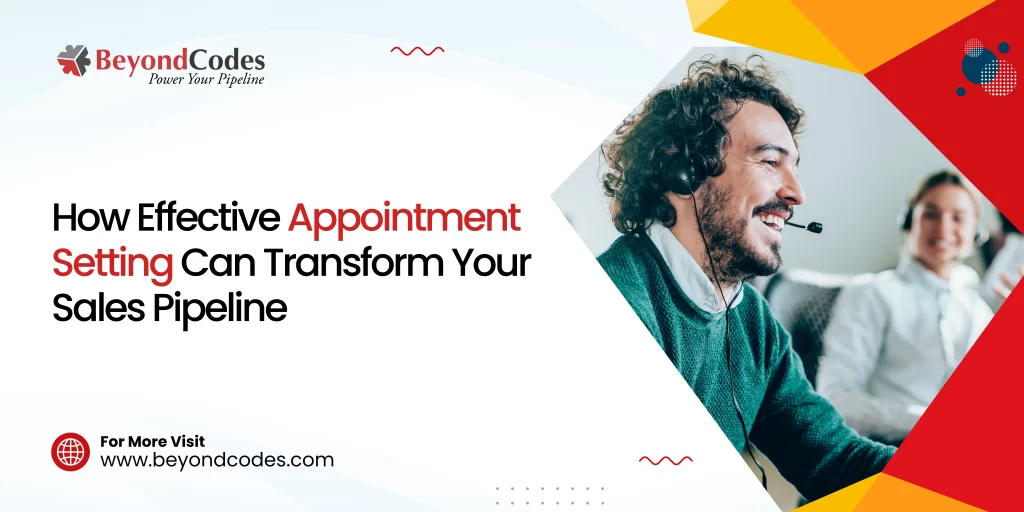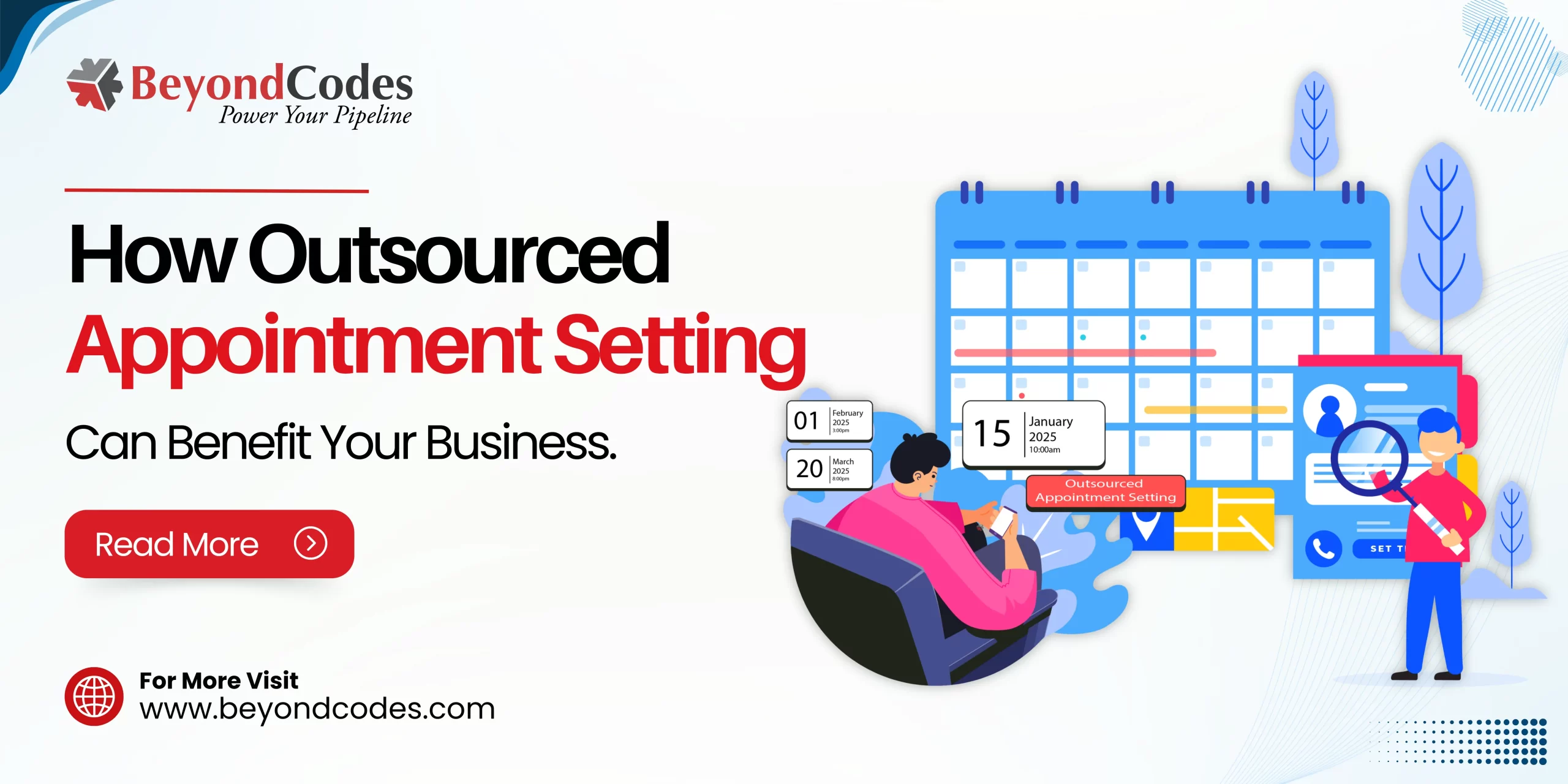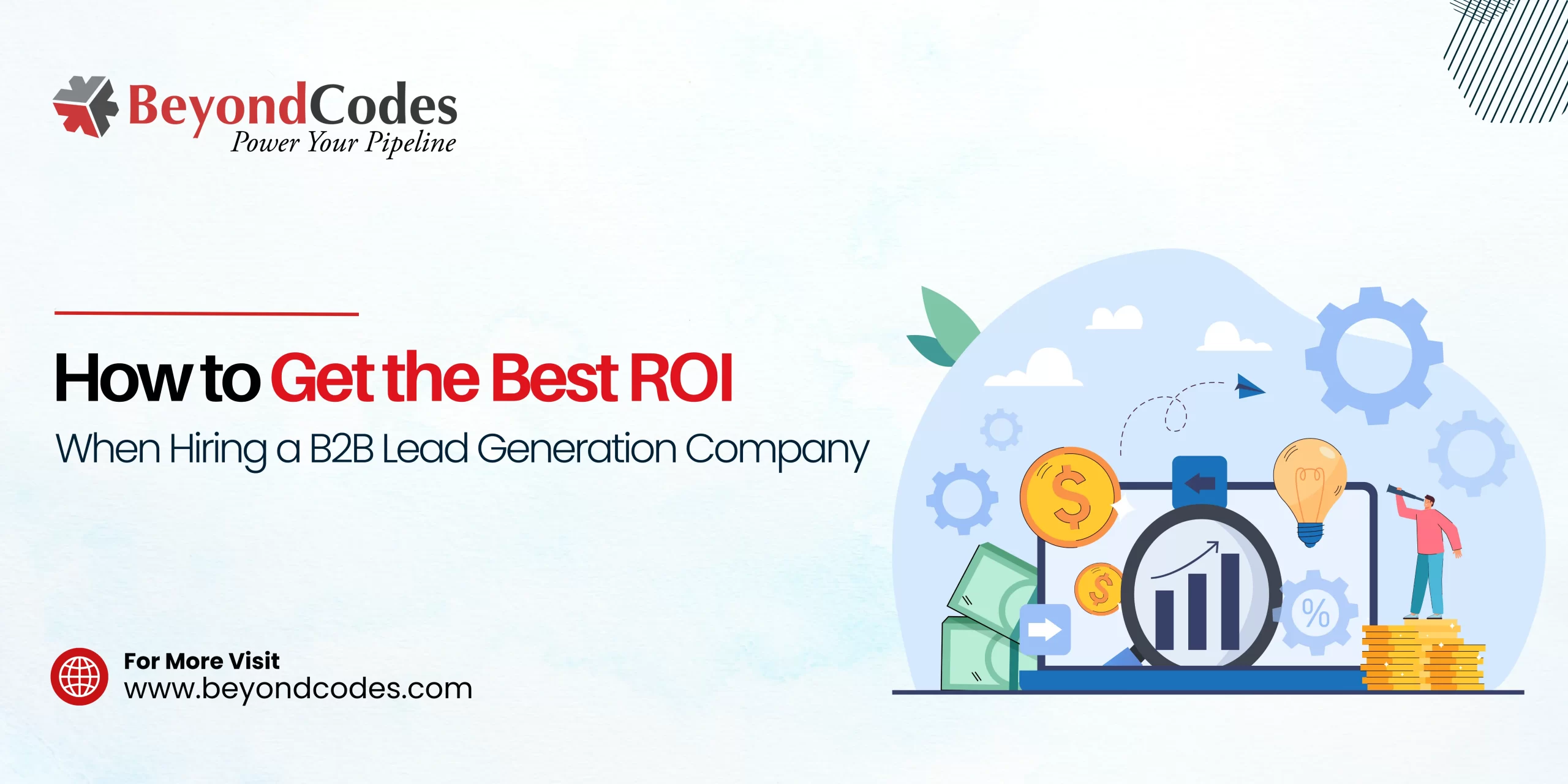Generating leads isn’t enough to guarantee sales success and mark your presence in this competitive business environment. Many companies have large lead databases but struggle to convert those leads into meaningful business opportunities. That’s where appointment setting comes in.
Appointment setting transforms your sales pipeline from a chaotic list of names into a streamlined process that puts your sales team in front of people ready to have real conversations. It’s not just about scheduling meetings; it’s about ensuring those meetings are productive, relevant, and geared toward closing deals.
B2B Appointment setting is reaching out to potential clients, engaging them in conversation, and scheduling meetings with your sales team to discuss their needs and offer reliable solutions. It ensures that only interested and qualified prospects make it into your sales pipeline.
This article covers how to create an appointment setting strategy effectively to turn your sales pipeline into a dynamic, revenue-generating business.
The Role of Appointment Setting in a Sales Pipeline
Appointment setting isn’t a stand-alone activity; it plays a vital role in ensuring the entire sales process runs smoothly. Here’s how it affects each stage of the sales pipeline:
1. Lead Generation
Leads can come from multiple sources like marketing campaigns, inbound inquiries, or referrals. However, many leads aren’t ready for a conversation with sales. They need to be nurtured, qualified, and engaged before making it to the next stage. This is where appointment setters step in, identifying the leads that are genuinely interested and ready to move forward, ensuring the pipeline stays filled with high-potential prospects.
2. Lead Qualification
A critical aspect of appointment setting is determining whether a lead is a good fit for your products or services. The expert appointment setters ask the right questions to assess whether the prospect’s needs align with what your company offers. This not only improves the quality of leads entering your sales pipeline but also saves your sales team time, as they focus only on leads that are worth pursuing.
3. Building Client Relationships
Appointment setting is often the first point of human contact between your business and potential clients. A well-trained appointment setter not only sets the stage for the meeting but also begins building a relationship with the prospect. Creating a positive, professional rapport from the very first interaction creates a smoother path to sales, as prospects are more likely to trust a company that takes the time to understand their needs early on.
4. Nurturing Long-Term Prospects
Not all leads are ready to make a buying decision right away. Some may need time to do more research, secure budget approval, or evaluate other options. In these cases, appointment setting plays a key role in keeping the conversation going without being overly pushy. A well-crafted follow-up strategy ensures that when the lead is ready to move forward, your company remains top of mind.
The Benefits of Appointment Setting for Your Business
When executed effectively, appointment setting offers many benefits beyond filling your sales pipeline. Here’s how it can transform your business:
1. Increased Efficiency for Sales Teams
By removing the burden of cold calling and prospecting from your sales team, appointment setting allows them to focus on closing deals. Salespeople spend their time speaking with highly qualified prospects, rather than wasting time on leads that are unlikely to convert. This increase in efficiency not only saves time but also boosts morale, as sales reps are more motivated when they’re engaging with leads that have a genuine interest in your offerings.
2. Higher Conversion Rates
Appointment setting ensures that only qualified leads make it to your sales team. By filtering out uninterested or unqualified prospects early on, appointment setters allow sales reps to focus their energy on leads that are likely to convert. This focus on quality over quantity leads to higher conversion rates and more closed deals, providing a significant boost to overall sales performance.
3. Shorter Sales Cycles
A well-organized appointment setting process shortens the time it takes to move leads through the sales pipeline. When your sales team is regularly meeting with pre-qualified leads who are already aware of your offerings, the sales conversation becomes more focused, and decisions are made more quickly. As a result, deals are closed faster, helping you achieve revenue targets more efficiently.
4. Improved Lead Nurturing
For prospects who are not yet ready to buy, appointment setting provides a structure for ongoing nurturing. Appointment setters stay in contact with these leads, offering additional information or setting future check-ins to keep the conversation alive. This ensures that when the prospect is ready to make a decision, your business remains top of mind. It also prevents potential opportunities from falling through the cracks.
5. Enhanced Customer Experience
The first interaction a potential customer has with your business is crucial. Appointment setters serve as the initial point of contact, and their professionalism and communication skills can set the tone for the entire sales process. When handled correctly, this first interaction builds trust and creates a positive experience for the prospect, making them more likely to engage with your sales team and, ultimately, become a customer.
6. Scalable Growth
For businesses looking to scale their sales efforts, appointment setting provides a scalable solution. Whether handled in-house or through a B2B appointment setting agency, it allows businesses to increase the volume of qualified leads entering the pipeline without overwhelming the sales team. As your business grows, your appointment setting strategy can be adjusted to handle larger volumes of leads and appointments, ensuring that your sales pipeline remains full and productive.
Read More:- The Importance of Follow-Ups in B2B Appointment Setting
Building an Effective Appointment Setting Strategy
To fully benefit from appointment setting, businesses need to implement a clear, well-organized strategy. Here’s a step-by-step guide to creating a strategy that works:
1. Define Your Target Audience
The first step in building an effective appointment-setting strategy is knowing exactly who you want to target. Creating detailed buyer personas that outline your ideal customers’ industries, company sizes, job titles, and pain points helps appointment setters focus their efforts. The more specific you can be, the better your results will be.
2. Personalize Your Outreach
Generic, mass emails or phone calls are unlikely to generate interest. Appointment setters should personalize their outreach based on the prospect’s industry, needs, and previous interactions with your company. Whether it’s through email, phone, or social media, a personalized message resonates better and increases the likelihood of securing a meeting.
3. Train Your Appointment Setters
Appointment setting requires specific skills, including communication, active listening, and the ability to ask the right questions. Training appointment setters to master these skills is essential for success. A well-trained appointment setter will be able to qualify leads more effectively, handle objections smoothly, and engage prospects in a way that encourages them to move forward in the sales process.
4. Leverage Technology
Modern technology, such as CRM systems and automated scheduling tools, can significantly improve the appointment setting process. These tools help appointment setters track their interactions with leads, schedule meetings efficiently, and automate follow-up reminders. CRM systems also allow businesses to analyze performance data, such as appointment conversion rates, to identify areas for improvement.
5. Regularly Review and Optimize
Appointment setting is not a “set it and forget it” process. To ensure continued success, it’s important to regularly review the effectiveness of your strategy. Analyzing key metrics, such as the number of appointments set, the quality of leads, and the conversion rate, will help you identify what’s working and what needs to be improved. This continuous optimization ensures that your appointment setting process evolves with your business needs.
In-House vs. B2B Appointment Setting Agency: What’s Best for Your Business?
Choosing between managing appointment setting in-house or outsourcing to a B2B appointment-setting agency depends on several factors, including your company’s size, budget, and growth goals. Let’s examine the pros and cons of each approach:
In-House Appointment Setting
Managing appointment setting internally allows for greater control and customization of the process. Your in-house team can closely collaborate with your sales and marketing departments to align strategies and messaging. However, building and managing an in-house team requires significant resources, including time for recruitment, training, and ongoing management. For smaller businesses, this may not be the most cost-effective option.
B2B Appointment Setting Agency
A B2B appointment setting agency offers a more scalable and often more efficient solution. These agencies specialize in lead qualification and appointment scheduling, bringing in their expertise, technology, and established processes to help you reach more qualified leads. Partnering with an agency allows your sales team to focus on closing deals while leaving the time-consuming task of prospecting to the experts. This option is especially beneficial for businesses looking to scale quickly or those with limited internal resources.
Conclusion: Driving Sales Success with Appointment Setting
Appointment setting is a critical component of a successful sales pipeline. It bridges the gap between lead generation and closing deals by ensuring that only qualified, interested leads make it into your sales funnel. Whether managed in-house or through a B2B appointment setting company, this process can dramatically improve the efficiency and effectiveness of your sales efforts.
By implementing a structured appointment setting strategy that includes clear target audience definition, personalized outreach, and regular performance reviews, businesses can transform their sales pipeline into a highly efficient, revenue-generating machine. As a result, appointment setting not only fills your sales pipeline but also helps drive long-term business growth by consistently delivering high-quality leads to your sales team.
Book a call with us now and turn your leads into sales opportunities!
FAQs
Answer.
Appointment setting in sales is the process of scheduling meetings between potential customers and sales representatives. The goal is to connect qualified leads with the sales team for a meaningful discussion about their needs and how the company’s products or services can help. It’s a key step in converting leads into customers by ensuring sales teams are meeting with prospects who are genuinely interested.
Answer.
Appointment setting helps businesses improve sales efficiency by focusing on qualified leads, allowing sales teams to dedicate their time to those most likely to convert. It shortens the sales cycle, reduces time spent on unqualified prospects, and increases overall conversion rates. Additionally, appointment setting enhances customer experience by ensuring prospects are contacted at the right time, with personalized outreach.
Answer.
Appointment setting involves reaching out to prospects, either through cold calling, emails, or other communication channels, to schedule a meeting or demo with a sales representative. The appointment setter typically asks qualifying questions to determine if the prospect is a good fit for the product or service. If they meet the criteria, a meeting is arranged between the prospect and the sales team to further discuss their needs.
Answer.
Lead generation refers to the process of identifying potential customers and collecting their contact information. It’s the initial step in bringing prospects into the sales funnel. Appointment setting, on the other hand, is a more focused process that happens after leads have been generated. It involves qualifying those leads and scheduling meetings with sales representatives, ensuring that only high-quality leads progress to the sales stage.
Answer.
Outsourcing appointment setting to a B2B agency can be a good option for businesses that lack internal resources or need to scale their efforts quickly. Agencies typically have specialized expertise and tools to qualify leads and schedule meetings efficiently. However, businesses that prefer greater control over the process or have a strong in-house team may choose to manage appointment setting internally. The decision depends on the company’s goals, resources, and budget.







